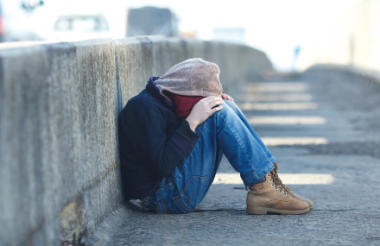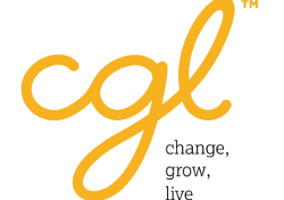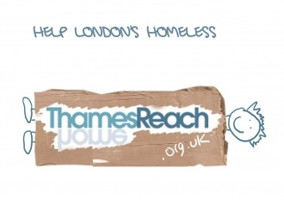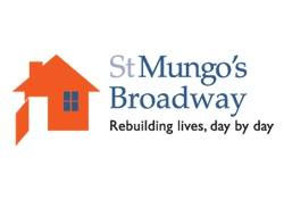Corporate Watch, a non-profit co-operative group, which has accused a number of homelessness charities of “collaborating” with the government to forcefully deport non-UK rough sleepers.
The Corporate Watch Report, The Round-Up: rough sleeper immigration raids and charity collaboration, names St Mungo’s, Change Grow Live and Thames Reach as conducting “regular joint visits with Immigration Enforcement officers” which saw 133 rough sleepers detained and a further 127 non-UK citizen rough sleepers deported from the UK last year.
Charities dispute the allegation that they are collaborating.
The report said, while “charity outreach workers set out to help homeless people, through a creeping process of changes they are being turned into informers, while some of the city’s most vulnerable people are disappeared into the nightmare of indefinite detention and deportation”.
Figures from the most recent Combined Homelessness and Information Network (CHAIN), annual report for Greater London April 2015-March 2016 indicated that nearly 60 per cent of rough sleepers on the streets of London were non-UK nationals.
The story has been picked up by The Guardian, which said that enforcement activity against non-UK rough sleepers was stepped up last May, before the EU-referendum vote. The Guardian said that local authorities have been invited “to bid for Home Office funds to assist with immigration enforcement initiatives”.
A spokesman for the Mayor of London’s office told the Guardian that it funds routes home for non-UK rough sleepers at a cost of “£599,406 a year” and that St Mungo’s has been contracted to "provide the service”.
‘We do not share information with the Home Office, except where the individual has given consent’
Homelessness charity St Mungo’s, one of the charities named by Corporate Watch in its report, has refuted the notion that it “collaborates” with the Home Office to forcefully deport rough sleepers, saying instead it does not share information “except when an individual has given their consent, or in situations where people are at risk”.
In a statement on its website, the charity said: “People not from the UK may not have entitlements to any benefits. This can result in complex situations for them with no access to housing or support services, which in turn results in long term rough sleeping which is harmful and dangerous.
“Our outreach teams are commissioned by local authorities. If they are working with non UK nationals sleeping rough they would first ensure that people understand their rights and entitlements, including, where feasible, assistance to take up options in the UK like work and housing.
“Where local authorities or the Home Office decide to take action against individuals or groups who are sleeping rough, we do work with them in order to ensure that people who are vulnerable get the help that they need. Our role here is about advocacy and safety."
A spokesman from Thames Reach said that, between April 2016 and January 2017, outreach teams from the organisation “supported 92 people to return home voluntarily” covering the cost of their travel and put them “back in touch with family and friends and connected with accommodation providers and support agencies”.
Mark Moody, executive director of health and social care at Change, Grow, Live, said: "We work with a number of local authorities and statutory agencies around the country to reduce the risks faced by rough sleepers and find solutions to their sometimes complex needs. If employment or housing cannot be found for an EU national, we will offer supported reconnection to that home country or somewhere they have relatives, and liaise with services there to ensure they have a place to go.
“When there is no other option and the person has refused reconnection, they are unable to work and cannot be housed, there is little alternative to them going back to their home country.”
‘Using homeless charities to spy on the homeless is a new low,’ says Spurrier
Martha Spurrier, director of human rights membership organisation Liberty, said that evidence of the Home Office using charities to “spy on the homeless is a new low”.
“Using homelessness charities to spy on the homeless is a new low, even for a government bent on bringing border controls into every corner of our lives.
“Turning unaccountable citizens into immigration officers can only lead to racial profiling, discrimination and alienation, raising tensions in already divided communities. If the Home Office genuinely wants to rise to the post-Brexit challenge, it must end this toxic ‘border on every street’ policy.”
For its part, Corporate Watch has called upon other homelessness charities and care workers to “refuse or ‘forget’ to hand over information to the Home Office” and to “stop cooperating with St Mungo’s, Thames Reach, CGL, and other collaborating charities until these stop working with the Home Office”.
A spokesman from the Home Office, said: “It is unacceptable for anyone to come to the UK with the intention of sleeping rough and/or to beg on the streets to support themselves.
“Those who are encountered rough sleeping may be misusing their free movement rights. We will take action, including removal from the UK where appropriate, against EEA nationals who refuse to find alternative accommodation.
“We work closely with local councils and homelessness outreach services to ensure that those who are vulnerable receive the care they need.”
Related Articles












